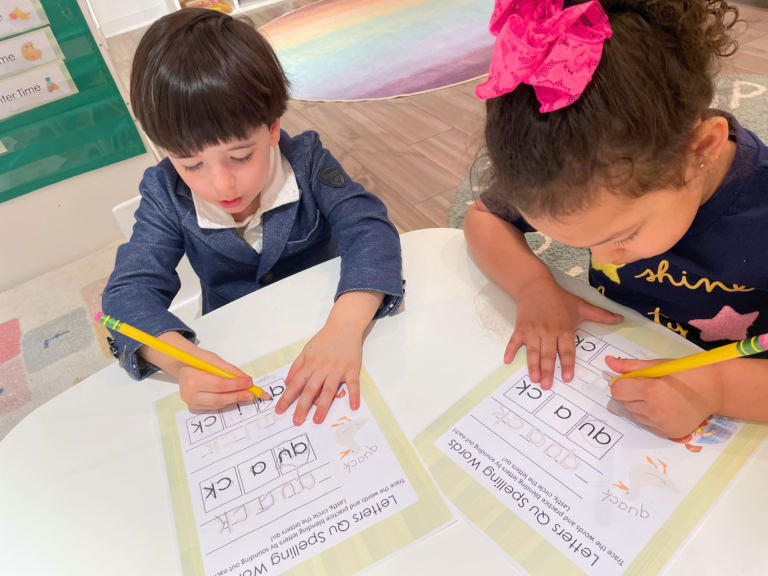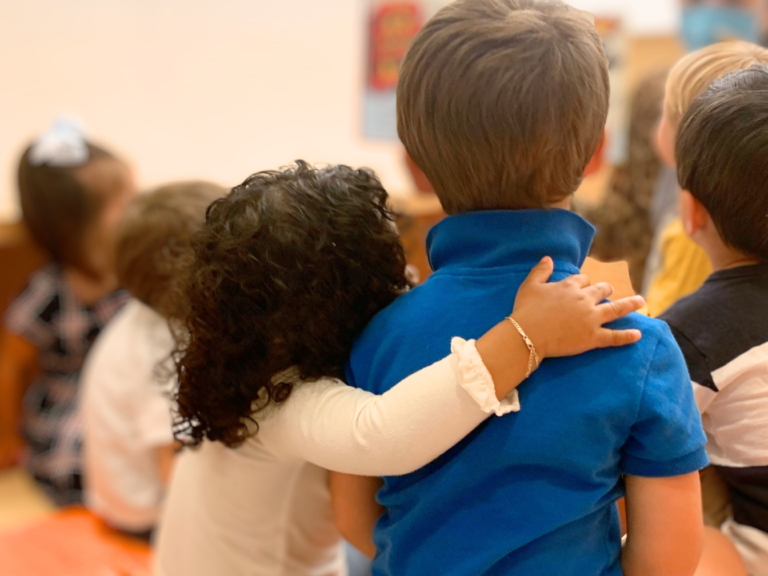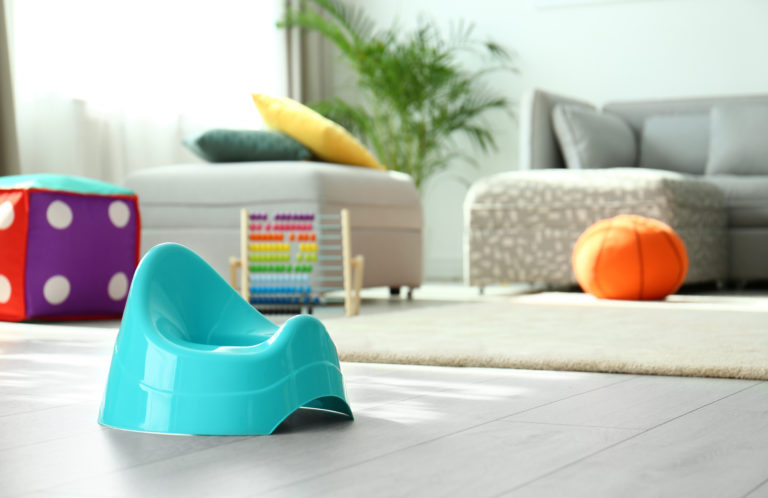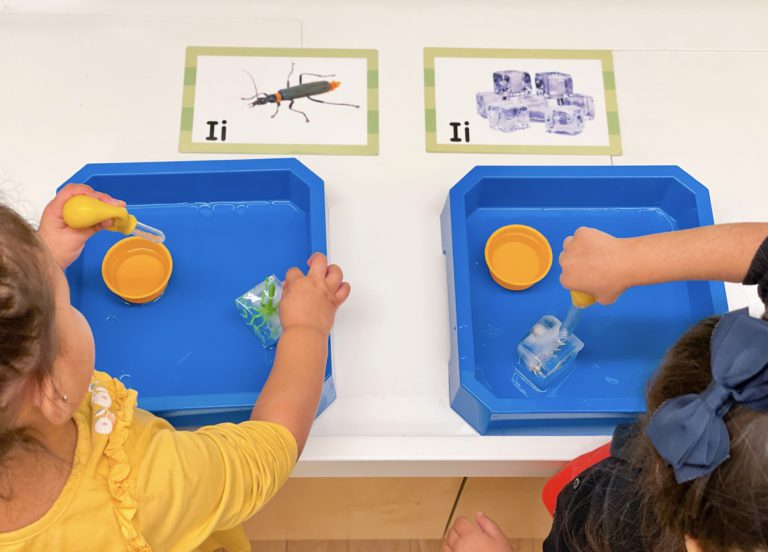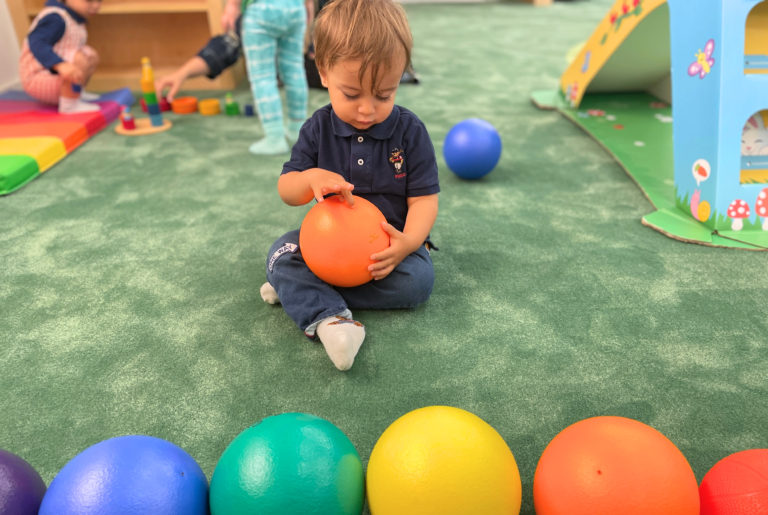Helping Little Ones Work Through Big Emotions
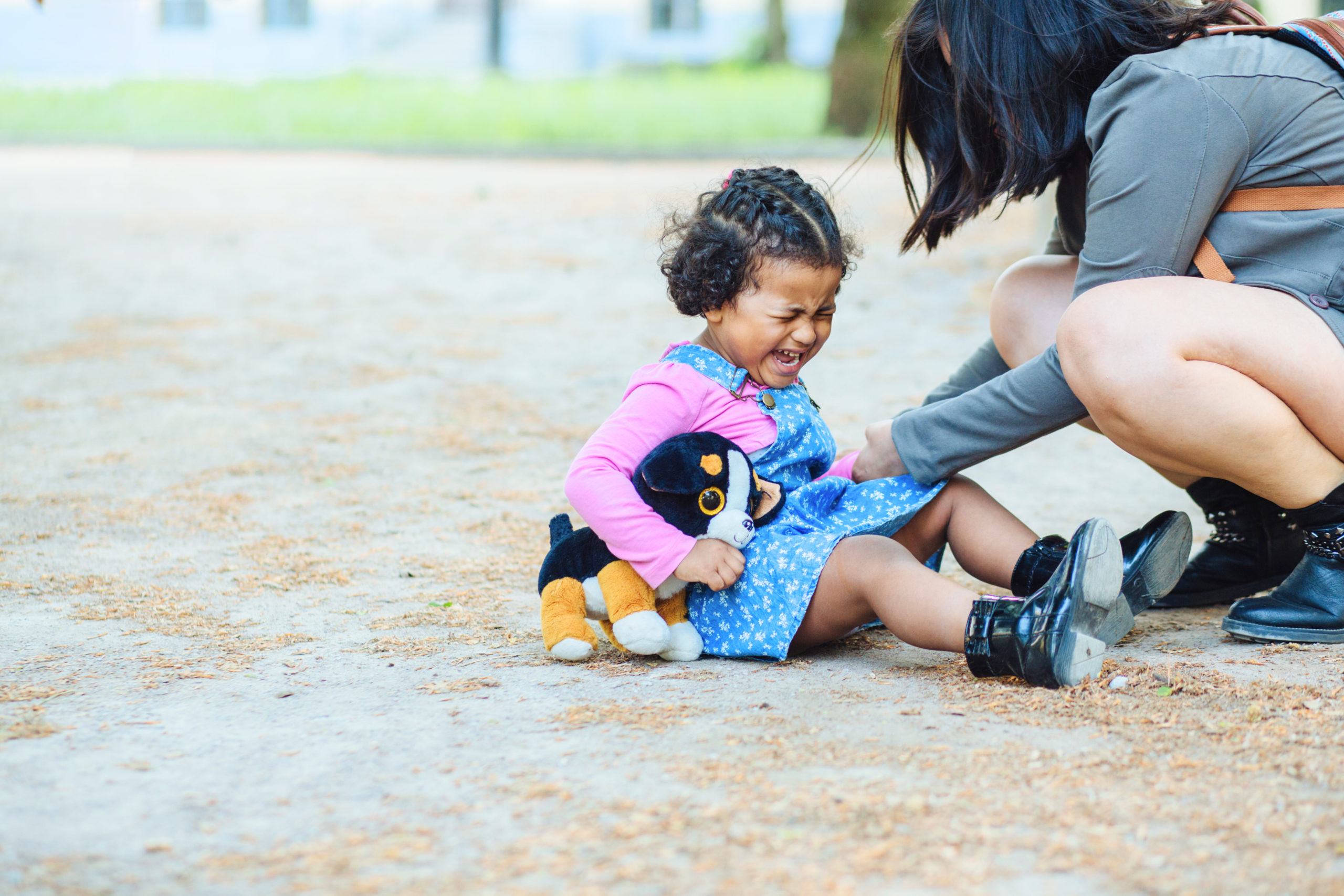
Dealing with big emotions can be tricky for people of all ages; we all lose our cool from time to time. For little ones, they are often experiencing these emotions for the very first time and do not have the tools, strategies, or social emotional learning to work through them. Behavior that can be categorized as a tantrum is often a result of your little one not knowing how to handle the big emotions they are feeling.
This is so important to remember: if your child is experiencing high emotions and tantrums, it does not mean that you are doing anything wrong. It is important to remind ourselves and our little ones that whatever feelings we are having, they are valid and it is okay to feel them. Handling big emotions does not mean ignoring or shoving those feelings down. Below you will find some helpful tips and social emotional learning activities that you can try with your little one the next time they are feeling big emotions.
Note that patience is going to be your best friend when dealing with the high emotions of little ones. This means practicing your own mindfulness, checking in with yourself, and taking care of your mental health. Just like on an airplane with oxygen masks, we have to help ourselves before we help others.
Self-Regulation
Little ones are in the process of learning self-regulation. This skill helps us handle stress in healthy ways, as well as increases our capacity to learn and focus. Because they also do not quite understand reason yet, receiving punishment when still learning how to self-regulate could inhibit them from feeling safe enough to work out their emotions. Feeling shame or fear around big feelings can lead to unhealthy coping mechanisms in the future; therefore, having an environment to safely explore different self-regulatory behaviors is critical in social emotional learning.
Taking Over
“Fixing” whatever made your little one upset will only reinforce the logic that outbursts will lead to them getting what they want. Instead, give them space to try and self-soothe. Self-soothing can look like thumb-sucking, pacifiers, favoring a blanket or stuffed animal, something they find comfort in. Working through the emotions with them can make the big feelings less intimidating, and they may be more willing to lean into self-soothing if they have someone to do it with them.
Breathing Exercises
In meditation and yoga, getting back to the breath is one way to find calm and grounding. When little ones get upset, we can often hear in their voice how disconnected from their breath they are. Helping them take deep breaths is a preschool activity that can help them find some calm and grounding within themselves.
Body Outline
If drawing is of interest to your little one, this is a great preschool activity for social emotional learning. Draw a simple outline of a human body on a piece of paper and ask your little one to color in parts of their body that feel different or funny. Ask about the drawing and try not to imply anything, e.g. “you’re using blue, so you must be sad.” A simple “tell me about your drawing” is a great opener to let them know they are safe and free to express their feelings. They can also decline to talk about their drawing, and that is okay, too. Give them the option to hang up the drawing or tear it up. This activity is about releasing emotion, not artwork analysis.
Let’s look at an example of a big emotion and work through it step by step:
Big Emotion Example
Say your little one is upset about a parent leaving for work. Telling them “they always come back,” or “we’ll see them tonight for dinner,” is not super effective when they are very much in their feelings.
Start where they are: All they know is that someone they love just left and they do not understand why they left or when they will be back. Validate their emotions, and, if those emotions are high, invite them to breathe with you. If they are reluctant, find another activity that can allow them to find some calm: counting, drawing, or even hugging a stuffed animal are simple social emotional learning activities that can bring your little one back to a place of calm.
Acknowledge and validate: “I know, we love them so much and it’s hard to say ‘see you later.’” Validating with empathy is key with an upset little one; just think about how comforting it is to hear that someone understands big emotions you could be experiencing. We connect and comfort with empathy.
Invite a solution: Offer support to your little one. If their emotions are high, odds are yours could be too. Invite them to take big breaths with you. Together, you can touch your noses, and breathe in through your nose and out through your mouth like blowing out a birthday candle or cooling down a mug of hot chocolate. Once they have cooled down, offer an activity to do together — any preschool activity they love and will get their mind and body calm is great.
Wait it out: Sometimes bringing up the situation that led to their big feelings too soon can cause those feelings to start up again. Begin the preschool activity or social emotional learning activity that brought them down from that high emotion, and once you start moving through the day, pick a time to talk about the morning. “You were really upset when so-and-so left this morning. Why do you think it was so hard to say ‘see you later’ today?” Talking about the big emotions can lead to less shame about feeling them in the future, leading to better communication skills, successful relationships, and better social emotional learning in general.
Empathize and reason: “I know it’s hard to see someone we love leave for the whole day, but so-and-so will always come back at the end of the day because they love you so much.” Additionally, the parent who leaves can chat with the little one, telling them “It is just as hard for me to leave in the morning, but I know I get to see you when I get home at the end of the day and we get our special time together!”
Dealing with big emotions and feelings is difficult for people of all ages, and self-regulation develops gradually in little ones. With the help of their support system: family, friends, parents, teachers, and coaches; your kids can feel safe to learn and explore different social emotional learning activities and methods of taking care of their big emotions.
Popular


Hi, I'm Miss Julia!
Miss Julia has been an early childhood educator for 5 years, with over 10 years of experience working in childcare. She has been teaching at Playgarden Prep since 2017, and is happy to share ideas on some of her favorite early education topics with you! Miss Julia has a BA from UC Irvine, and uses her experience in performing arts to inspire little ones every day in her enrichment classes at Playgarden. In her free time, Miss Julia loves enjoying nature, cooking, and creating with friends.

